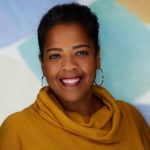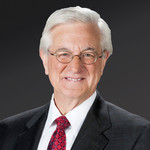Manassas-based aerospace company Electra.aero Inc. has received a Strategic Funding Increase award from the U.S. Air Force‘s AFWERX arm that secures up to $85 million for development of a prototype electric short takeoff and landing (eSTOL) aircraft.
The award, announced Thursday, secures funding between private investments, government funding and matching Small Business Innovation Research (SBIR) funding for the development, testing and evaluation of a full-scale pre-production prototype. AFWERX is a technology directorate of the Air Force Research Laboratory — the Air Force’s center for research and development — that teams technology developers with Air Force and Space Force personnel.
The company’s eSTOL is designed to operate in spaces the size of a soccer field and can fly missions including cargo logistics, executive transport and humanitarian assistance and disaster response in urban remote areas. Electra plans to test a two-seat piloted eSTOL demonstrator aircraft at the Manassas Airport Electra facility in the spring, and the award will accelerate Electra’s development of a commercial nine-passenger eSTOL product aircraft that would support Air Force missions of interest. The aircraft would have a 2,500-pound payload, allowing it to carry nine passengers, two pilots and 50 pounds of baggage over 400 nautical miles, although the payload specifications are subject to change, according to Electra’s website.
“This STRATFI award reinforces the Air Force’s commitment to dual-use eSTOL technology as a solution for national security and other government missions and validates Electra’s aircraft design and engineering work to date,” Electra founder, Chairman and CEO John S. Langford said in a statement.
The award builds on Electra’s six active USAF SBIR and Small Business Technology Transfer Phase II and Phase III contracts, used to develop eSTOL technology aspects such as distributed electric propulsion, blown lift aerodynamics and acoustics, precision flight controls and hybrid-electric powertrains. Electra is a partner of the AFWERX’s Agility Prime program, which aims to accelerate the commercial market for advanced air mobility vehicles and mitigate regulatory risks.
“It’s vital that we ensure new advanced air mobility technologies with dual-use applications are developed and manufactured here at home in the U.S.,” Lt. Col. John “Wasp” Tekell, the Air Force’s Agility Prime program lead, said in a statement. “Electra’s eSTOL technology has the potential to deliver valuable logistics and mobility capabilities to the Air Force.”
Founded in fall 2020, Electra is focused on developing hybrid-electric, ultra-short takeoff and landing airplanes and has 40 employees and contractors. Electra has received more than 1,000 eSTOL aircraft orders from commercial customers, according to a news release.





